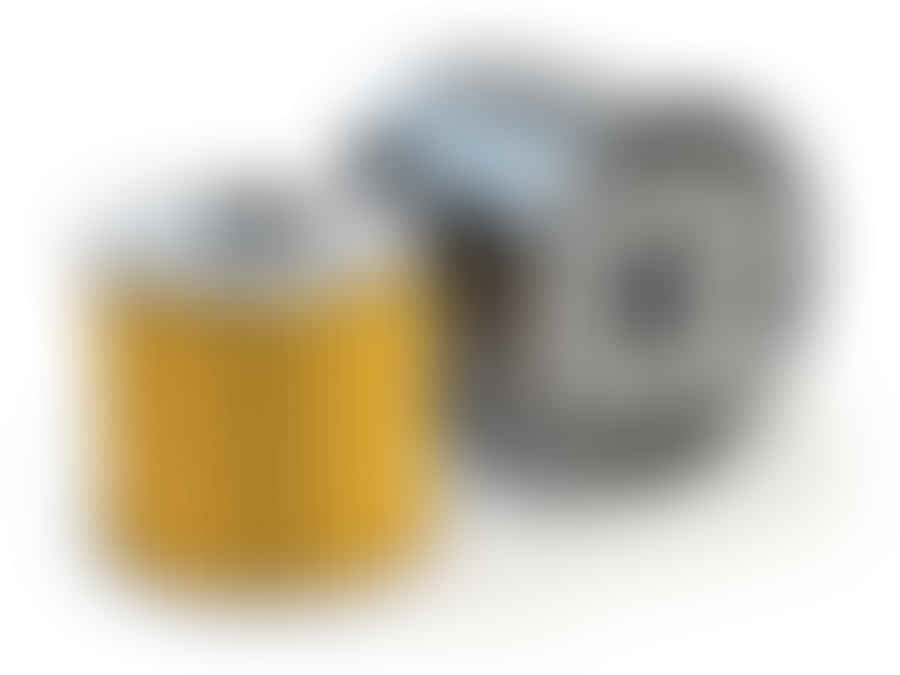- Regular car maintenance is important for safety, improved performance, increased lifespan, and reduced repair costs.
- Regularly check your car's fluid levels, including engine oil, coolant, brake fluid, and transmission fluid.
- Inspect your car's tires regularly for proper tire pressure, tread depth, and any damage.
- Learn how to troubleshoot common car problems, such as dead batteries, flat tires, and strange noises.
- Regular oil changes are essential for maintaining engine health and preventing damage.
- Replace worn brake pads to ensure safe braking and shorter stopping distances.
- Keep your car's battery in good condition by inspecting, cleaning terminals, checking electrolyte levels, securing the battery, and testing its charge.
Car Maintenance 101
Regular maintenance checks are essential to keep your car running smoothly and avoid unexpected breakdowns.
In this comprehensive guide, we'll dive into the basics of car maintenance, equipping you with the knowledge to perform regular checks and troubleshoot common issues. From checking fluid levels and tire pressure to addressing strange noises and warning lights, we'll cover it all.
Get ready to become a proactive car owner and enjoy a smoother and more reliable ride!

The Importance of Regular Car Maintenance
Regular car maintenance is crucial for ensuring the longevity, safety, and optimal performance of your vehicle. A well-maintained car saves you money on costly repairs and provides a smooth and enjoyable driving experience. In this section, we'll discuss the key reasons why regular car maintenance should be a top priority for every car owner.
- Safety: Ensuring the safety of the driver, passengers, and other road users is one of the primary reasons for regular car maintenance. A poorly maintained vehicle can lead to accidents due to malfunctioning components, such as worn-out brakes or faulty steering systems. Regular inspections and timely repairs can help prevent such issues and keep you and your loved ones safe on the road.
- Improved Performance and Fuel Efficiency: Regular maintenance helps your car run at its best by keeping the engine and other systems in optimal condition. This not only results in better performance but also improves fuel efficiency, ultimately saving you money on gas. For example, properly inflated tires and clean air filters can significantly boost your car's fuel economy.
- Increased Lifespan: A well-maintained car is likely to have a longer lifespan compared to a neglected one. Regular maintenance helps prevent the wear and tear of vital components, reducing the chances of costly breakdowns and extending the life of your vehicle. This means you can enjoy your car for many more years and get a better resale value when it's time to upgrade.
- Reduced Repair Costs: Regular maintenance allows you to identify and address minor issues before they escalate into major problems. By fixing small problems early, you can avoid expensive repairs and the inconvenience of unexpected breakdowns. In the long run, investing in routine maintenance can save you a significant amount of money.
Regular car maintenance is essential for ensuring safety, improving performance and fuel efficiency, increasing the lifespan of your vehicle, and reducing repair costs. By prioritizing routine checks and timely repairs, you can enjoy a smooth and hassle-free driving experience.

Checking Your Car's Fluid Levels
Regularly checking your car's fluid levels is an essential part of car maintenance. It helps to ensure that your car is running smoothly and can prevent costly repairs down the line. Here are some of the fluids you should check and how to do it:
- Engine Oil: Your car's engine oil is essential for lubricating the engine's moving parts and preventing wear and tear. To check your car's oil level, park on level ground and turn off the engine. Wait a few minutes for the oil to settle, then locate the dipstick, pull it out, and wipe it clean. Reinsert the dipstick and pull it out again to check the oil level. The oil level should be between the two marks on the dipstick. If it's low, add more oil, but be careful not to overfill.
- Coolant: Your car's coolant helps to regulate the engine's temperature and prevent overheating. To check your car's coolant level, wait for the engine to cool down, then locate the coolant reservoir under the hood. The reservoir will have markings indicating the minimum and maximum levels. The coolant level should be between these two marks. If it's low, add more coolant.
- Brake Fluid: Your car's brake fluid is essential for the proper functioning of the brakes. To check your car's brake fluid level, locate the brake fluid reservoir under the hood. The reservoir will have markings indicating the minimum and maximum levels. The brake fluid level should be between these two marks. If it's low, add more brake fluid.
- Transmission Fluid: Your car's transmission fluid is essential for lubricating the transmission's moving parts and preventing wear and tear. To check your car's transmission fluid level, park on level ground and turn on the engine. Locate the transmission dipstick, pull it out, and wipe it clean. Reinsert the dipstick and pull it out again to check the fluid level. The fluid level should be between the two marks on the dipstick. If it's low, add more transmission fluid.
By regularly checking your car's fluid levels, you can help ensure that your car is running smoothly and avoid costly repairs down the line. If you notice any leaks or abnormalities, be sure to have them checked by a certified mechanic.

Inspecting Your Car's Tires
Your car's tires are one of the most important components of your vehicle. They are what keep you on the road and ensure a smooth ride. Regularly inspecting your tires can help prevent accidents and save you money in the long run.
- First, check the tire pressure. Proper tire pressure is essential for safe driving and fuel efficiency. Use a tire pressure gauge to check the pressure of each tire, including the spare. The recommended tire pressure can be found in your car's owner manual or on a sticker located on the driver's side door jamb. If the pressure is too low, add air until it reaches the recommended level. If it's too high, release some air until it's at the correct level.
- Next, inspect the tread depth. Tread depth is important for maintaining traction on the road. A tire with low tread depth can cause your car to skid or hydroplane in wet conditions. To check the tread depth, use a penny. Insert the penny into the tread with Lincoln's head facing down. If you can see the top of Lincoln's head, it's time to replace the tire.
- You should also inspect the tire for any cuts, bulges, or punctures. These can cause a blowout while driving and should be addressed immediately. If you notice any damage, take your car to a professional to have the tire repaired or replaced.
Regularly inspecting your car's tires can help prevent accidents and ensure a smooth ride. Don't neglect this important aspect of car maintenance.
Troubleshooting Common Car Problems
No matter how well you maintain your car, there will be times when problems arise. It's important to be able to troubleshoot common car problems so that you can address them quickly and prevent further damage to your vehicle.
- One common problem that many drivers experience is a dead battery. If your car won't start, it's likely that the battery is dead. You can jump-start your car using jumper cables and another vehicle, or you can use a portable jump starter. If your battery is more than three years old, it may be time to replace it.
- Another common problem is a flat tire. If you notice that your tire is flat, pull over to a safe location and change the tire. Make sure that you have a spare tire, a jack, and a lug wrench in your car at all times. If you don't know how to change a tire, it's a good idea to learn before you need to do it in an emergency.
- If you hear strange noises coming from your car, it's important to investigate the source of the noise. Grinding or squeaking brakes may indicate that your brake pads are worn and need to be replaced. A knocking sound may indicate a problem with your engine. If you're not sure what's causing the noise, take your car to a mechanic for a diagnosis.
By being aware of common car problems and knowing how to troubleshoot them, you can keep your car running smoothly and avoid costly repairs. Remember to always prioritize safety and seek professional help if you're unsure about how to address a problem.
 100%;" data-filename="image.png">
100%;" data-filename="image.png">
The Importance of Regular Oil Changes
One of the most critical aspects of maintaining your vehicle's health is ensuring regular oil changes. The engine oil serves as a lubricant, reducing friction between the various moving parts of the engine. This helps prevent wear and tear, ensuring your engine runs smoothly and efficiently. Furthermore, engine oil also helps to dissipate heat, keeping the engine cool and preventing overheating.
- Over time, the oil in your engine can become contaminated with dirt, debris, and other particles, reducing its effectiveness as a lubricant. This can lead to increased friction and wear on your engine's components, potentially causing costly damage. Regular oil changes help to remove this contaminated oil and replace it with fresh, clean oil, ensuring your engine continues to run smoothly and efficiently.
- Most vehicle manufacturers recommend changing the engine oil every 3,000 to 5,000 miles, depending on the type of oil used and your driving conditions. However, it's essential to consult your vehicle's owner's manual for the specific recommendations for your make and model. Neglecting regular oil changes can lead to decreased fuel efficiency, increased emissions, and even engine failure in extreme cases.
- Pro tip: When you change your engine oil, it's also a good idea to replace the oil filter. The filter helps to remove contaminants from the oil, ensuring it remains clean and effective as a lubricant. A dirty or clogged oil filter can reduce the flow of oil to your engine, potentially causing damage.
In summary, regular oil changes are a crucial aspect of car maintenance that should not be overlooked. By keeping your engine well-lubricated and free of contaminants, you can ensure a smooth ride and prolong the life of your vehicle.

Replacing Worn Brake Pads
Brake pads are an essential component of your car's braking system, responsible for creating the friction needed to slow down or stop your vehicle. Over time, brake pads wear down and become less effective, which can lead to longer stopping distances and even accidents. Therefore, it's crucial to replace worn brake pads to ensure your car remains safe to drive.
How often should you replace your brake pads? The answer depends on various factors, such as your driving habits, the type of brake pads installed, and the vehicle's weight. Generally, brake pads should be replaced every 50,000 miles, but some may need replacement as early as 25,000 miles or as late as 70,000 miles. To be on the safe side, it's best to inspect your brake pads regularly and look for signs of wear.
Some common signs that your brake pads need replacement include:
- A squeaking or squealing noise when braking
- Reduced braking performance or a spongy brake pedal
- Vibration or pulsation in the brake pedal
- A dashboard warning light indicating worn brake pads
If you notice any of these signs, it's time to replace your brake pads. While some experienced DIYers may feel comfortable performing this task themselves, it's generally recommended to have a professional mechanic handle the job. This ensures that the new brake pads are installed correctly and that your braking system is functioning optimally.
Remember, regularly inspecting and replacing worn brake pads is a crucial aspect of car maintenance that helps ensure a smooth and safe ride for you and your passengers. Don't neglect this essential task – your safety depends on it!

Keeping Your Car's Battery in Good Condition
Your car's battery is the heart of its electrical system, providing the necessary power to start the engine and keep it running. A well-maintained battery is essential for a smooth and hassle-free driving experience. In this section, we'll discuss some tips for keeping your car's battery in good condition and prolonging its life.
- Regularly inspect the battery: It's important to visually inspect your car's battery at least once every few months. Look for any signs of corrosion, damage, or leaks. If you notice any issues, it's best to address them immediately to prevent further damage.
- Clean the battery terminals: Corrosion on the battery terminals can lead to poor electrical connections and reduced battery performance. To clean the terminals, disconnect the battery cables (starting with the negative cable), and use a wire brush or a mixture of baking soda and water to remove any corrosion. Once clean, reconnect the cables, making sure to tighten them securely.
- Check the electrolyte level: If your car has a conventional lead-acid battery, it's essential to check the electrolyte level regularly. The electrolyte should cover the plates inside the battery. If the level is low, top it up with distilled water. However, if your car has a maintenance-free or sealed battery, this step is not necessary.
- Keep the battery securely fastened: A loose battery can cause damage to the battery and other components in your car due to vibrations while driving. Make sure your battery is securely fastened in its tray and the hold-down clamps are tight.
- Test the battery's charge: A battery that's not holding a charge properly can lead to starting issues and poor performance. You can test your battery's charge using a multimeter or by taking it to a professional mechanic for testing. If the battery is not holding a charge, it may be time for a replacement.
By following these tips and regularly inspecting your car's battery, you can ensure that it remains in good condition and provides reliable power for your vehicle. Remember, a healthy battery is crucial for a smooth and enjoyable driving experience.
Conclusion
As we reach the end of this maintenance journey, you're now equipped with the knowledge and tips to perform regular checks and troubleshoot common issues for a smoother ride.
Remember to schedule routine maintenance, check fluid levels, inspect tires, and address any strange noises or warning lights promptly.
By being proactive and attentive, you can catch potential problems early and ensure a reliable and enjoyable driving experience.
If you're ever uncertain or encounter complex issues, seeking professional assistance is always a wise decision.
So, rev up those engines and hit the road with confidence, knowing that your well-maintained car will provide you with a smooth ride every time.
Safe travels, and may your journeys be filled with comfort and reliability!




 100%;" data-filename="image.png">
100%;" data-filename="image.png">

Post a comment